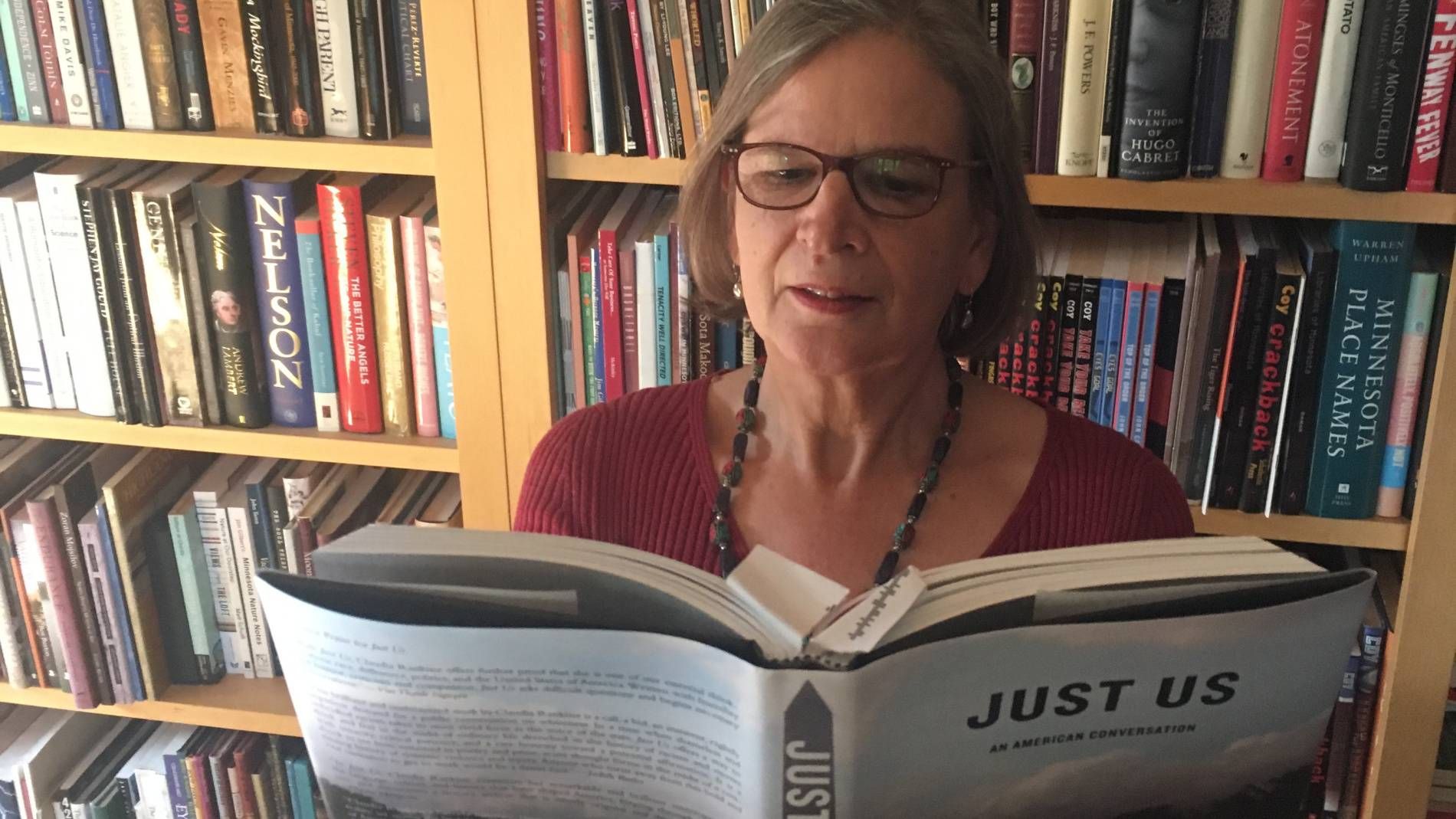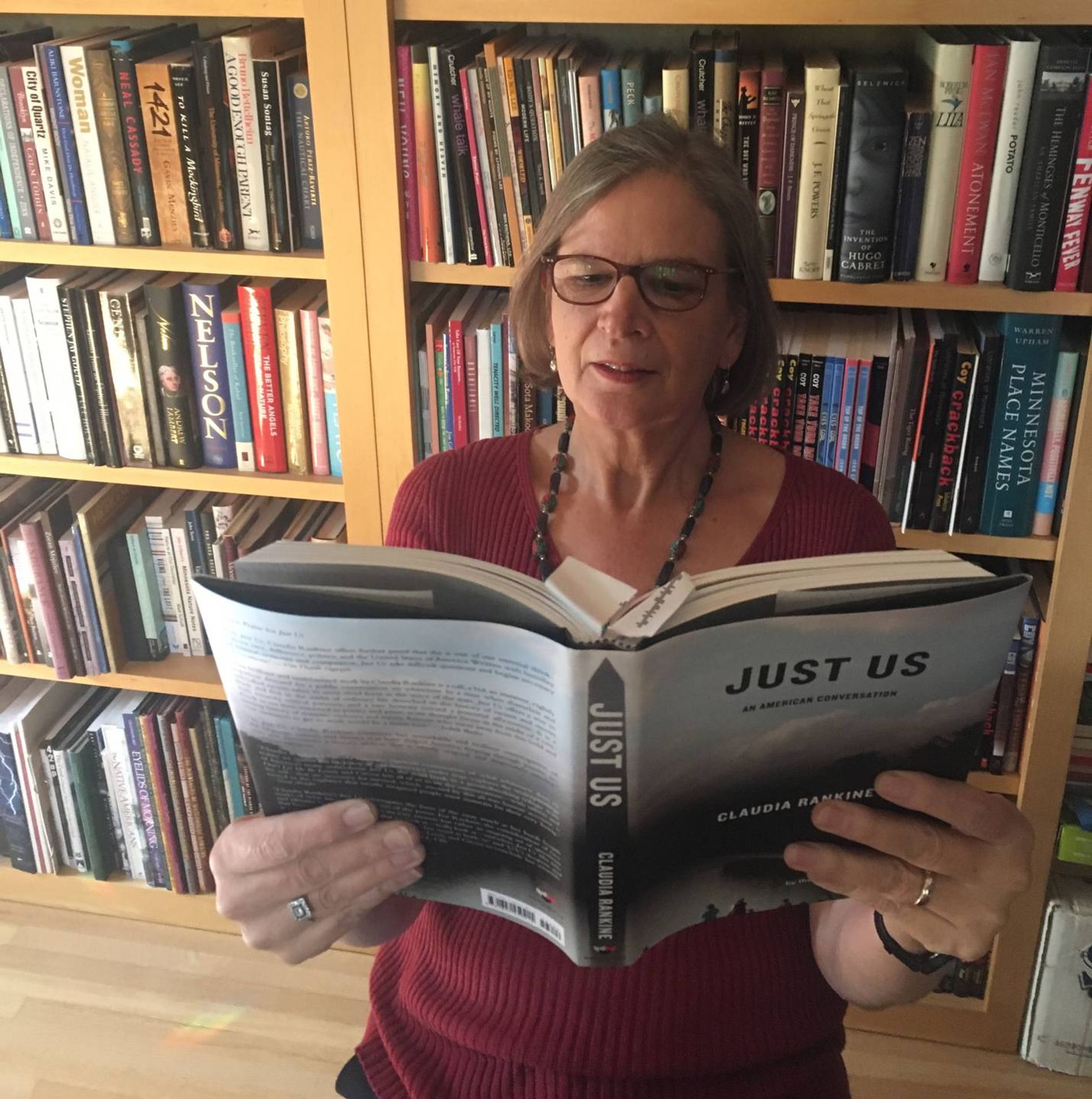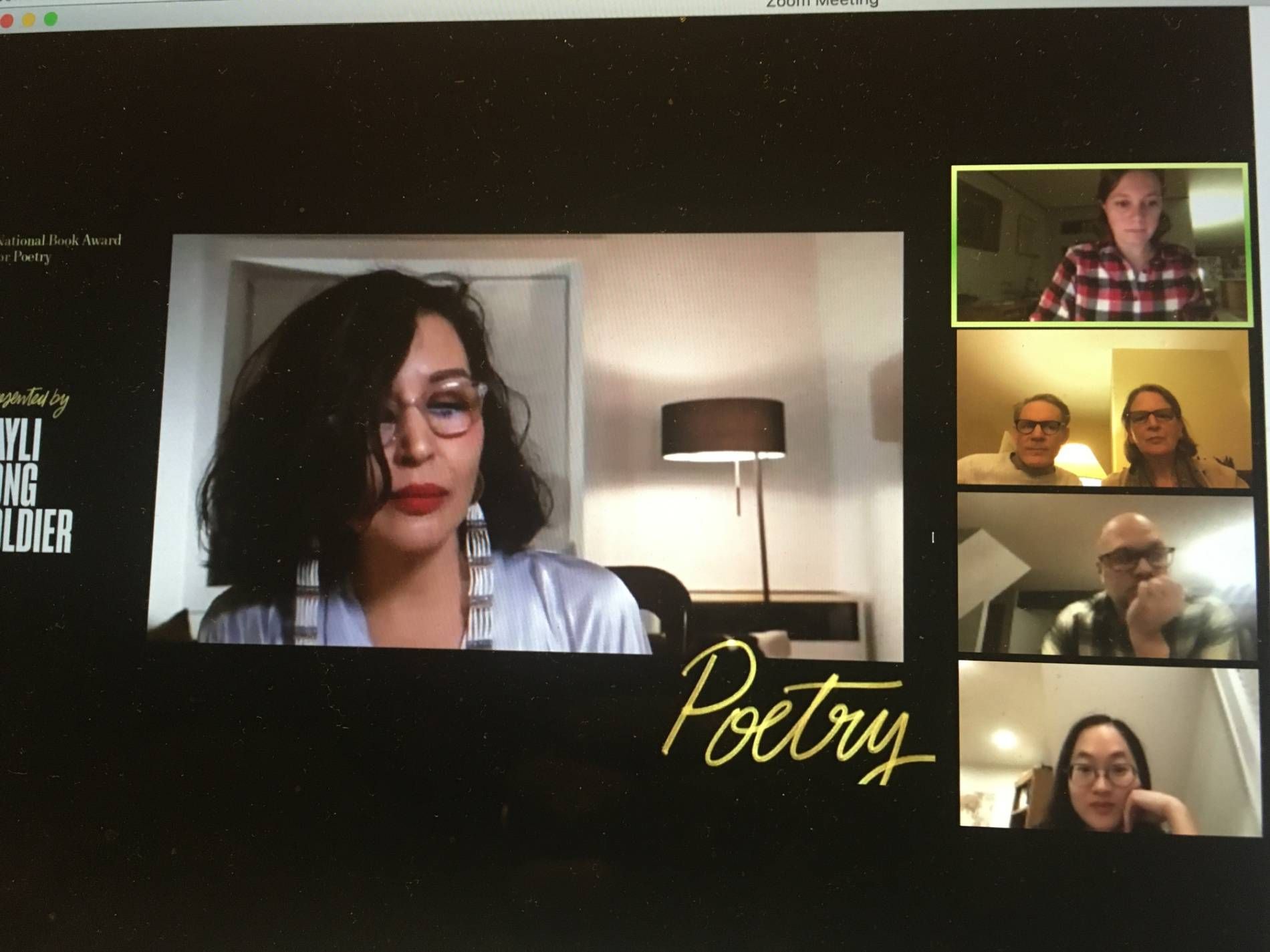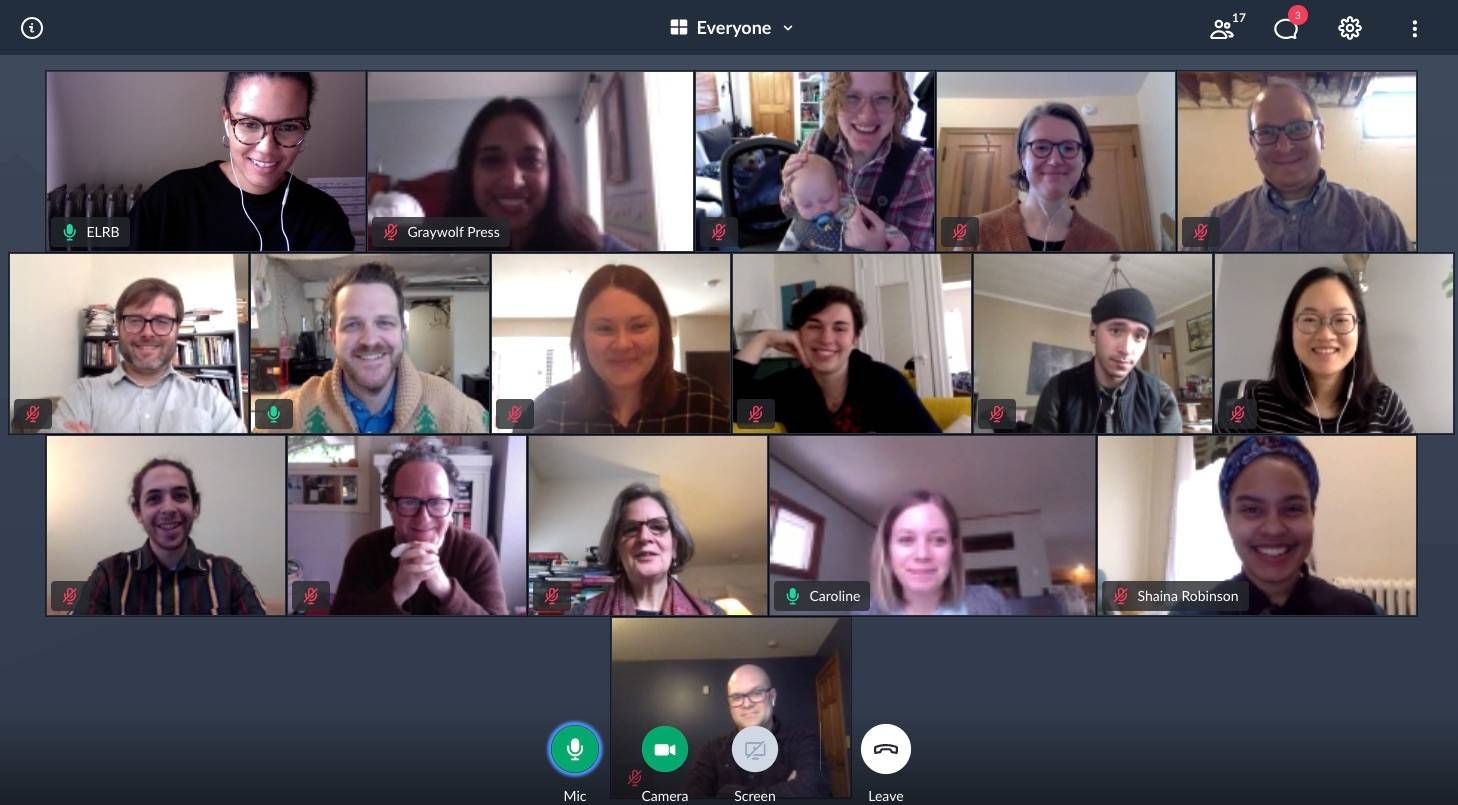Leading Through the Pandemic: Graywolf Press Publisher Fiona McCrae

“Leading Through the Pandemic” is a series focused on Twin Cities leaders and their reflections on the year of living during a pandemic and leading their teams into new ways of working.
In April 2021, we spoke with six Twin Cities leaders from various sectors – health care, independent business, nonprofit organizations, and education and religious institutions – about their experiences in decision-making, staff management and service to their audiences, patients and members during the last year of COVID-19 and civil unrest. Without a doubt, 2020 tossed countless challenges at any semblance of stability, but the topsy-turvy year also inspired these leaders’ renewed hopes for a more sustainable future, one they might not have imagined without first grappling with so much unexpected turbulence.

In 1994, Fiona McCrae moved to the Twin Cities to become Graywolf’s publisher and director. At Graywolf, she has worked with such writers as David Treuer, Vijay Seshadri, Anna Burns, Daisy Johnson, Elizabeth Alexander, Per Petterson, Tsitsi Dangarembga and Jamel Brinkley. She has led three investment campaigns that helped fuel growth at the Press, which now publishes an annual list of thirty or so books of poetry, fiction and nonfiction.
During McCrae’s tenure, Graywolf authors have won the Nobel Prize for Literature, Pulitzer Prizes, the National Book Award, both the Booker and International Booker Prizes, National Book Critics Circle Awards, and Minnesota Book Awards. Recognition for Graywolf as an institution includes the Sally Award for Vision from the Ordway in 2005, the Excellence Award from the Minnesota Council of Nonprofits in 2012 and the AWP Small Press Award in 2015. McCrae currently serves on the boards of the Anderson Center and Fence, is Vice-Chair of the board of the National Book Foundation, and is an advisor to Orion magazine.
In her own words, McCrae shares decisions she and her staff made together over the last year, all while connecting authors, readers and donors across distances, and through the power of literature.
WHAT TO DO ABOUT THE OFFICE SITUATION?
We currently have 16 on staff. Our office space is never really open to the public, and during the pandemic, we have been working remotely, with one person going into the office at a time to carry out various functions.
We are a book publisher, putting out 30 or so new books a year. Our first concern was with the books we were in the middle of launching or those coming out in the immediate future. A launch is normally accompanied by a series of public events across the country. These had to be cancelled and/or pivoted to virtual events. We also wondered how the book industry as a whole would fare, and we wanted to support independent bookstores as much as possible. Our longer-term work on books that were scheduled to publish after the pandemic was less affected.
And of course, we scrambled nearly overnight to set up a remote office.
CULTIVATING READERS AND DONORS IN THE TIME OF COVID
We were fortunate that, apart from the huge pivot around events, which is a supporting activity, our core business continued to function as bookstores fulfilled orders, then gradually reopened and people were able to order books online. A new online store, Bookshop.org, happened to launch this year, which gave people an online retail option that benefited indie stores. It has been tough for the stores, though, as having customers in-store is much more efficient than mailing out books to customers.
After the murder of George Floyd a year ago, we saw a surge in some of our sales, as we have many books by BIPOC writers. In particular, our book Citizen by Claudia Rankine, which looks at everyday racial micro-aggressions - alongside police brutality - in a very fresh and immediate way, picked up considerably in sales at that time. This enabled us to make a few donations to local relief efforts. But the whole industry is now re-examining how and why it is as white as it is and taking more immediate steps to address our own racial inequities.

As a nonprofit, we were also navigating how best to reach and communicate with donors, as we slowed down our goals for a big development campaign. We were able to devise some good virtual events that we hosted ourselves, including a significant salon/gala in the fall, which was very successful. We found there to be some upside for virtual presentations because it increased our geographic reach for certain cultivation events, and for board and national council meetings.
It was a boon for authors to do remote book events around the country. Last fall we launched Claudia Rankine’s Just Us: An American Conversation, and people had a deep and urgent need to hear her voice and engage in conversation. We also collaborated with Penumbra Theatre on "Essential Conversations: Building a Better Twin Cities Through Poetry and Storytelling." As well, we spun-off a new event for donor development, from "Editors Lunch" pre-pandemic to "Editors Launch," an invitation to come behind the scenes with editors and other staff around one or two new books coming out. While these are live virtual events, there is a real intimacy to them.
Now, planning for fall 2021 seems complicated, with some loosening of restrictions. I am picking up that some people are “Zoomed out” and longing to gather again, while others are nervous about being in groups of people, so it is almost harder to plan six months out now than it was at the height of the pandemic.
MANY READERS REDISCOVERED THE POWER OF LITERATURE
At the beginning of the pandemic, we heard from people who couldn’t concentrate long enough to read a book. But others fought against the reverberations of loneliness by reading. I am hopeful that people who rediscovered the power of literature during this time will stick with books when life opens up. Also, I am hoping that people have a renewed appreciation for how literature reaches people and how the fact that we do not gather people under one roof can sometimes be a help.
Although this has been hard to explain to people, the literary world was always a virtual community in some ways. We ripple out into the world from the book’s launch. We don’t always know who our customers are; we’re not present when they read our books. But there is a power in the shared experience of reading.
CHECKING IN WITH SELF AND STAFF DURING THE PANDEMIC
On a personal level, reading, daily walks with my husband, cooking fresh food, Zoom yoga with an incredible teacher, and visiting the twin grandsons and their family outside during this whole time have been very grounding and sources of real joy.
Nonetheless, at Graywolf we have had multiple challenges over the months. As a staff, we have instituted individual check-ins in addition to our staff meetings, developed a new strategic plan that doubles down on our existing priorities around equity and inclusion, and generally been engaged in discussions about how we organize ourselves. We are looking at a more flexible work model going forward. In some ways, it has been a powerful bonding experience to go through this time together as a staff. There has been a lot of understanding that we are not at our best, that not everything can get done. We have tried to encourage everyone to take what they need in terms of days off and rest. The staff with young kids at home were particularly affected, but no one had an "easy" time. The culture at work has been very generous and caring - I have been amazed and humbled by how people have been "there" for each other, either sharing when they have felt vulnerable or being supportive of their colleagues who were struggling. We also made sure to keep up with some of our social staff traditions, by having Zoom gatherings at mid-summer and at year-end.
I think in any hybrid or remote work model going forward, people need to ask, "Have I connected with everyone I needed to today? Have I been present for the essential needs of the work and the people doing it?"
ASKING TOUGH QUESTIONS IN A TIME OF SEISMIC CHANGE
I think that society as a whole is going through a huge seismic shift at the moment - so big that we can't even see it in its entirety. As a leader managing during this critical time and in the midst of so much pain in the Twin Cities, I have asked myself, “What have I failed to do as a leader to let this happen in our community? How could I have fought harder with my fellow senior leaders for a more just society?”

On a small level, we are planning what "office life" should look like after this. For example, some people now want to continue working remotely, for at least some part of the week, so I do not think we are ever going to be a full staff working in the office 9 am to 5 pm again. I also think, as I have been indicating, that our work around social and racial equity will continue to inform many of our choices as we continue to imagine and strive toward a better world.
Just as book stores and publishers have faced tremendous changes in their business models, the pandemic has also spurred seismic changes in the restaurant industry. Mucci's and Trattoria Mucci restaurateur Tim Niver shares how he and staff members overcame significant hurdles between 2020 and 2021.
“As I made it to the final bell, I pulled out my box of eight crayons and recited the eight colors. I held the crayons in one hand and turned to Benny. He stared at me as I said, ‘red, blue, green, purple, brown, black, yellow and orange.’ They were my first words in English. Poet Ray Gonzalez shares “The Language of Sunlight, 1956,” about his early introduction to “the necessity of English while growing up in the desert southwest.
As part of the “Leadership Through the Pandemic” series, writer Pamela McClanahan also interviewed Dr. Roli Dwivedi, who is an Assistant Professor of Family Medicine and Community Health, and Chief Clinical Officer at the Community-University Health Care Center at the University of Minnesota. Dr. Dwivedi discusses the challenges of meeting patient needs during the height of the COVID-19 pandemic, how her teams embraced a blend of in-person, online and hybrid medical visits, and how they mobilized testing and vaccination efforts in communities with low levels of trust in the medical industry.
